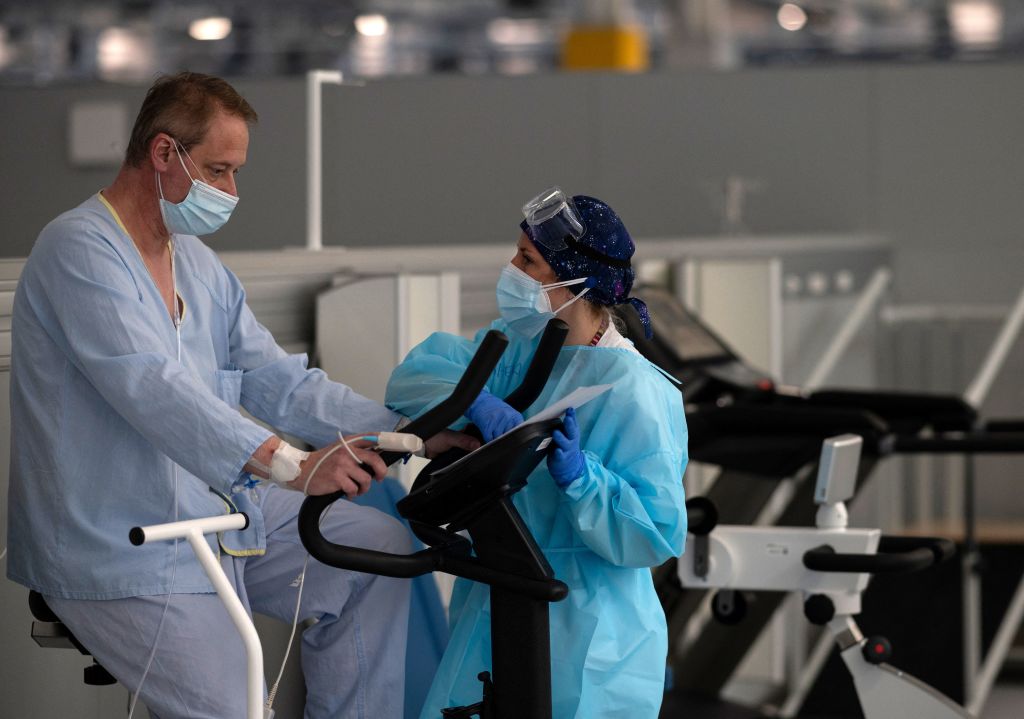ADF STAFF
Yvonne Chengwe developed COVID-19 in June of 2021. But more than a year after her recovery, she still experiences pain, anxiety and other symptoms associated with the condition known as long COVID.
The pain in her feet made standing for long periods an excruciating experience, which forced Chegwe, a resident of Johannesburg, South Africa, to give up working as a massage therapist. Today, she teaches English.
Long COVID can develop weeks or months after an initial COVID-19 infection has passed and can persist even longer. There is no medical definition for the condition, which manifests as any of 200 recorded symptoms or a mix of them. The most common symptoms are fatigue, pain, anxiety and the struggle with clear thinking called “brain fog.”
Researchers believe about a quarter of COVID-19 recoveries can turn into long COVID. For South Africa, where nearly 4 million people have recovered from their infections since the pandemic began, that means as many as 1 million people could develop long COVID.
“Unfortunately, very little attention is given to long COVID in South Africa and across the rest of the continent, but that is also the case globally,” professor Resia Pretorius of Stellenbosch University recently told The Lancet Respiratory Medicine.
That’s partly because many people with long COVID treat themselves at home rather than seeking out treatment in clinics. This makes it difficult to document symptoms and cases, according to Dr. Ahmed Ogwell, acting director of the Africa Centre for Disease Control and Prevention.
“We are working with the selected countries who have good data from their health facilities to capture the burden,” Ogwell said.
It’s important to develop a better understanding of long COVID because it draws crucial resources from other aspects of health care for extended periods, Ogwell said.
Samantha Ankoor is among those who have sought treatment for her long COVID symptoms, which included shortness of breath and brain fog.
Ankoor spent 11 months undergoing treatment at a private therapy center, where therapists use a combination of physical activity and cognitive behavioral therapy to help patients return to their pre-COVID state.
“It’s changed my life,” Ankoor told DW.com. “My memory is better. My cognition issues are gone. I’m just a different person now.
Ankoor is among the 27% of South Africans with private insurance that can cover the costs of private therapy. One option for other patients is the Post-COVID-19 Lung Disease Clinic at Groote Schuur Hospital in Cape Town.
Since 2020, the clinic has treated long COVID patients through a combination of medical disciplines drawn from across the hospital and designed to match their symptoms. Treatment teams can include physical therapists, psychologists, dietitians and internal medicine experts.
“What is needed is a multidisciplinary approach,” Dr. Rubeshan Perumal, a South African scientist, told Newzroom Afrika. “These sets of symptoms can arise from many places. Sometimes we’re not even able to identify what the source of the symptoms is.”
Perumal told The Lancet Respiratory Medicine that long COVID is “an inescapable public health concern.”
“We simply cannot allow the post-pandemic world to be characterized by wide-scale disability,” he said.
Perumal runs a public clinic that so far is the only one of its kind in South Africa. That’s a problem for the majority of South Africans living with long COVID, according to rehabilitation therapist Patricia Zondo.
“For people who do not have access to private rehab facilities, there’s only one government-funded facility,” Zondo told DW.com. “So, most of the cases are going untreated.”
Chengwe is among the South Africans who have been forced to find their own solutions to their long COVID symptoms. For her, the solution has been acupuncture.
“The pain in my feet has eased a lot,” she told DW.com.

